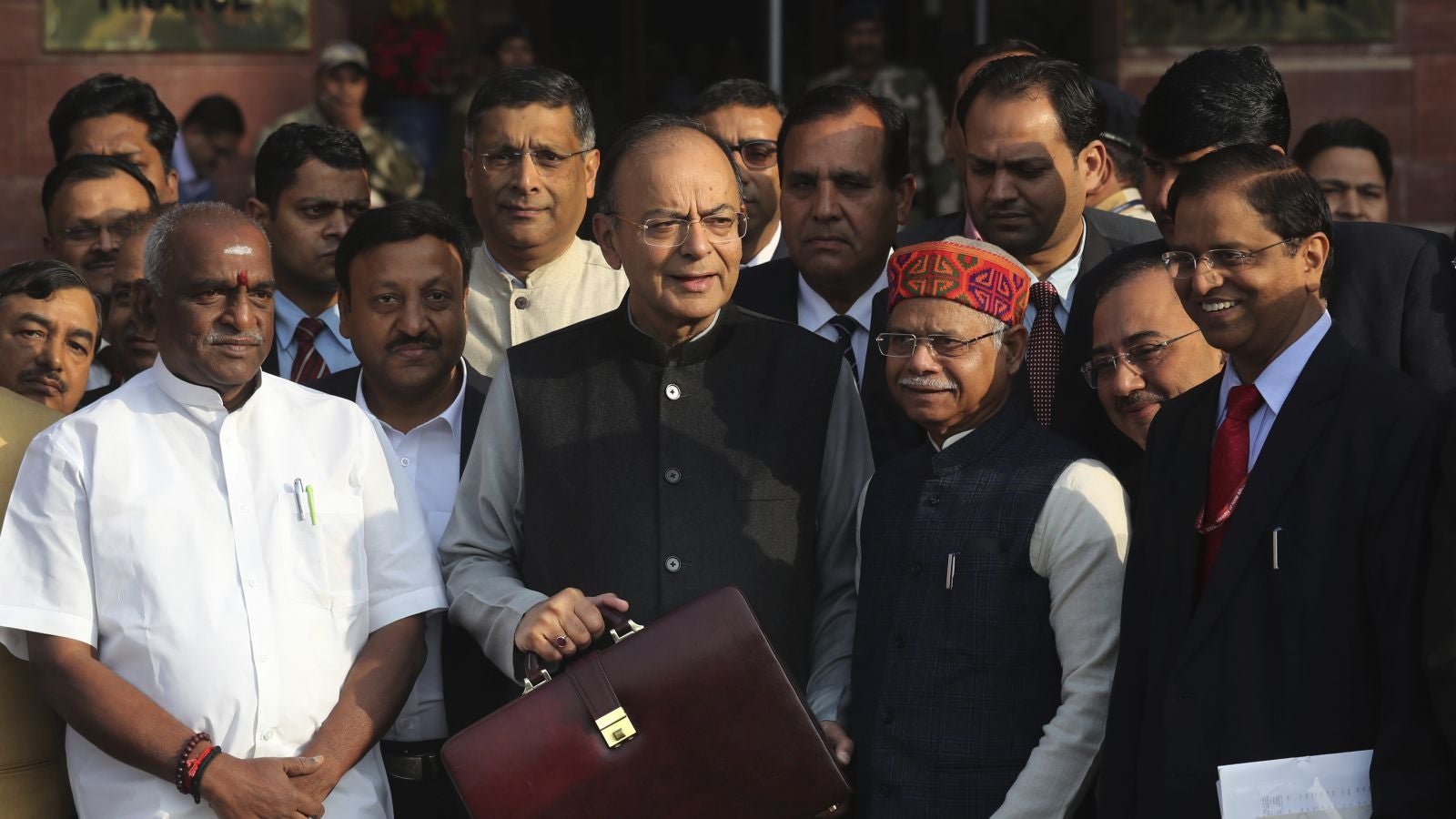Arun Jaitley’s budget has very little for the Indian taxpayer
Finance minister Arun Jaitley’s budget has left the ordinary Indian taxpayer rather disappointed.


Finance minister Arun Jaitley’s budget has left the ordinary Indian taxpayer rather disappointed.
Jaitley, in his budget speech on Feb. 01, did not relax any tax slabs, making only minor and cosmetic changes, according to Saraswathi Kasturirangan, partner at Deloitte India, a tax and audit consultancy firm. This comes at a time when a large number of imported items, including mobile phones, cars, television sets, toiletries, jewellery, etc. are set to get more expensive.
Overall, it is one of the least beneficial budgets for the average taxpayer since the Narendra Modi government took power in May 2014.
Kasturirangan spoke to Quartz on how it affects the average salaried individual. Edited excerpts:
What is in it for the salaried class?
First of all, there’s been an increase in cess. So, across the board, there will be a marginal increase in the tax rate from 0.1% to 0.345%, depending upon the income level. While there were hopes that tax slabs may be relaxed, the way these benefits have been offered, it doesn’t make it very attractive. For instance, earlier, salaried people use to get deductions for medical expenses (Rs15,000) and for transport allowance (Rs19,200). Now, instead of this, a standard deduction of Rs40,000 will be introduced. This does away with the hassle of paperwork both for the employer and employee, but doesn’t translate into any significant benefits. At a 20% tax rate, this will translate into a saving of Rs1,790 and that is hardly anything. So, there is barely anything for the regular salaried class, as such.
The government has also increased long-term capital gains tax (LTCG) for assets sold within a year of purchasing them. What does it mean for the average taxpayer?
The government has introduced the LTCG taxes if the income earned on these assets (mutual funds, shares, etc) is more than Rs1 lakh for sale of shares on or after 1 April 2018. However, any gains in the value of such assets upto 31 January 2018 will not be subject to capital gains tax, so that may be a minor relief. But overall, this can also increase the tax burden for the average taxpayer.
Do senior citizens stand to gain anything from the budget?
The deduction available on health insurance premiums has been hiked for senior citizens (above 60 years of age) from Rs30,000 to Rs50,000. The exemptions available for medical treatment of certain specified diseases such as cancer, etc. has been increased by Rs40,000 for senior citizens and by Rs20,000 for very senior citizens (above 80 years). Right now, we all get an exemption on bank deposits if they earn an interest of Rs10,000 per annum, and taxes are payable if the amount exceeds that. Now, that limit has been increased to Rs50,000 for senior citizens.
Do you think the Modi government’s previous budgets were more tax-friendly?
For financial years 2015 and 2018, the government had relaxed the tax slabs. This year, we didn’t see any announcement in that direction. My guess is that the thought stems from the fact that the salaried class is a strong tax-base and the government shouldn’t take steps to erode the tax base. Therefore, the relaxations offered are rather cosmetic in nature.
What more do you think could have been done?
There was a lot of scope for the government to make changes on the personal tax front, but nothing has happened. The finance minister has also accepted that there has been an increase in tax filing, so there has been a move towards compliance. The government could have given a pat on the back, as it did last year, by reducing the tax rate at least at the entry level. Even a marginal tinkering could have translated into a feel-good factor.